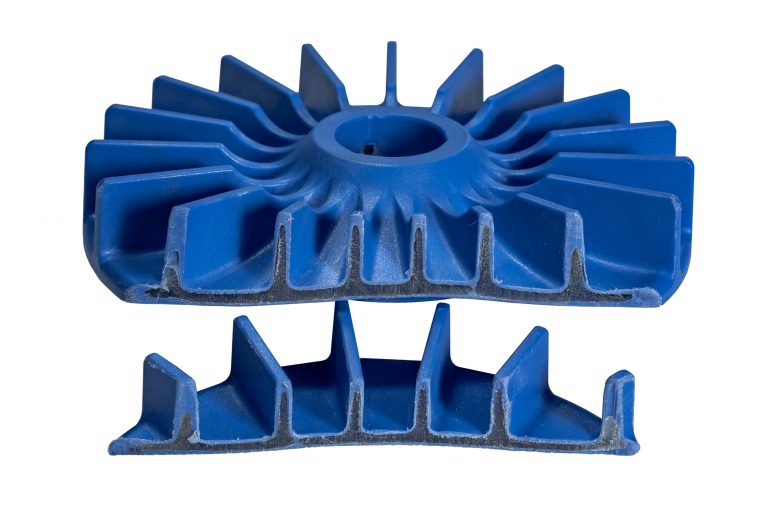Interview with Dr.-Ing. Volker Reichert, Owner and CEO of A & E Produktionstechnik GmbH

Can sandwich injection moulding, for which your company has developed a special nozzle, contribute to the recycling of recycled plastics?
Dr. Reichert: Sandwich injection molding is one way to reprocess recycled plastics in a meaningful way. It is not a panacea, as new plastic is also required for the production of new moulded parts and the recycled plastics must have an appropriate quality. The process always requires two melt streams consisting of different materials that means two plasticizing units. Those additional investment as well as operating costs must be taken into account in questions of cost-effectiveness.
So you can’t hide unsorted and poorly prepared recyclates in the core layer?
Dr. Reichert: If high-quality parts are produced, they need high-quality recyclates. If you pay two- or three-digit euro amounts per kilogram for high-quality engineering plastic, then you cannot fill in recyclates that may only be in the cent range. In principle, it is possible to recycle plastics from the Yellow Bag. However, the parts produced out of those materials do not meet the requirements specified on them. Under recycling or circulatory aspects, it should be the purpose to use the same materials for skin and core. So that the material properties are approximately the same. If you inject sandwich parts made of different plastics, you will later have the problem that you have to separate them during recycling.
The sandwich process has been around for decades. Will it become more important due to the current development towards more recyclate use?
Dr. Reichert: It is without a doubt, sandwich technology was always a niche process. Importance will increase due to the fact of circular requirements. However, what kind of growth rates we may achieve is questionable.
Nevertheless, the pressure to use recyclates is increasing.
Dr. Reichert: Many of our customers, i.e. the injection moulders, do not want the OEM’s of the moulded parts to know that recyclate has been processed. At present, however, we also notice that under the keywords circular economy and resource conservation, the proportion of recyclates is certainly indicated. The problem, however, is that with recyclate processing, the injection moulder takes responsibility for ensuring that the moulded parts with recyclate also meet the specified specifications. This leads to renewed testing and certification for high-quality parts. These costs must be generated again. The mostly lower price of recyclates alone will not be sufficient in many cases.
The higher costs are increasingly offset by the ecological benefits.
Dr. Reichert: In general, anyone who uses recyclates instead of virgin material has an ecological advantage. The production of recyclate does not release as much CO2 as new material. So far, this aspect has hardly played a role, but that is changing. It is foreseeable that processors, i.e. our customers, will be legally obliged to declare the CO2 footprint for their products. Assuming that the footprint for new material is 100 and for recyclate only 50 kilograms of CO2 per plastic unit used, then the use of recyclate suddenly becomes very important. Recyclate manufacturers can already provide information on how much smaller the CO2 footprint of their products is compared to virgin material.
Reducing the CO2 footprint is one thing, but at the same time, the functionality should remain the same.
Dr. Reichert: That is the way it is. Therefore the sandwich process has quite advantages. There are now additives that even improve the mechanical properties of the recyclates. The recyclates become worse and worse in the course of repeated reprocessing because the molecular chains degrade. There are now ways to sell the recyclates in such a way that they are almost equal to new material. Such a high-quality recycled material can be perfectly used as a core layer for sandwich components.
———————————-
The world is facing major challenges: climate change must be combated, the environment must be protected and resources must be conserved. It is also important to make good use of the opportunities offered by digitization. The plastics industry has a key role in this process, because plastics are omnipresent in the world.
Climate protection, digitalization and the circular economy are therefore also the three major topics at K 2022, the world’s leading trade fair for the plastics industry. To get in the mood for the industry meeting in autumn 2022, the VDMA has representatives of plastics machinery construction and all other stakeholders in the industry have their say in weekly interviews.

